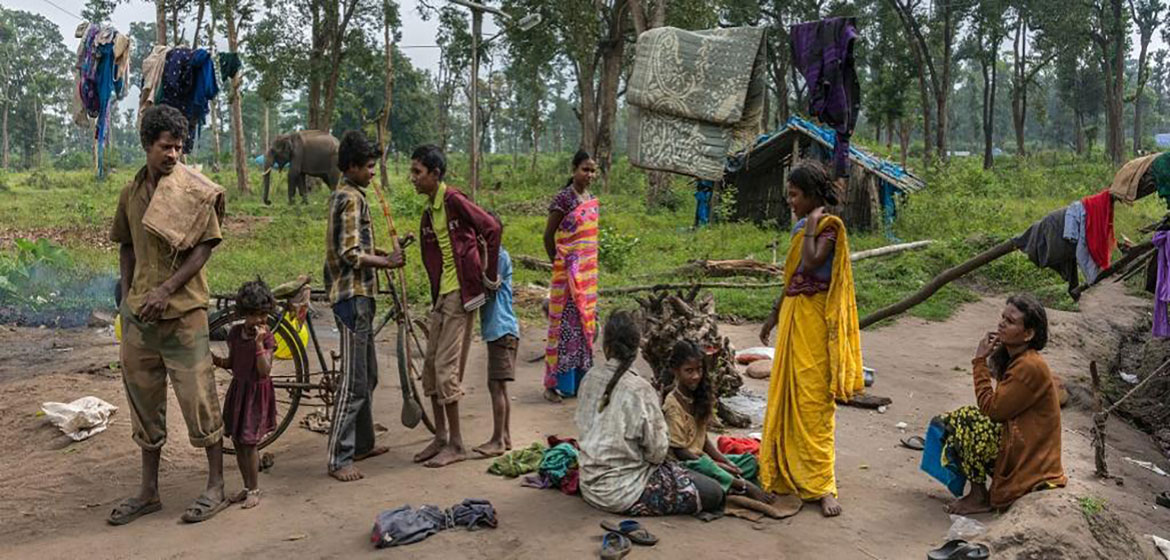According to a report, authorising the indigenous communities’ land titles can improve forest management and carbon storage
By Ishan Kukreti
Recognising land tenures of indigenous communities and their management rights over forests can help tackle climate change, according to a report by the Intergovernmental Panel on Climate Change (IPCC) that’s yet to be made public.
The IPCC's recognition of forest dwellers' rights come at a time when millions of them in India await a Supreme Court hearing on the constitutional validity of their rights under the It is to be held on July 24, 2019.
“Land titling and recognition programs, particularly those that authorise and respect indigenous and communal tenure, can lead to improved management of forests, including for carbon storage,” highlighted the IPCC Special Report on Climate Change, Desertification, Land Degradation, Sustainable Land Management, Food Security, and Greenhouse gas (GHG) fluxes in Territorial Ecosystem.
The report, once ratified by 197 countries of the United Nations Framework Convention on Climate Change (UNFCCC), will be released on August 8.
Climate change will lead to a 29 per cent spike in cereal prices by 2050, warned the report. It also found that increased concentration of CO2 in the atmosphere will reduce nutritional quality of food.
Also, according to the report, crop yield is expected to decline in tropical and semi-tropical areas owing to rising temperature and, hence, there’s a need for sustainable land management to prevent these outcomes.
“Involving locals in identifying land use pressures, including species decline, habitat loss, land use change in agriculture, food production and forestry, as well as decisions preventing, reducing and restoring degraded land” will lead to sustainable management of land, highlighted the leaked report.
Agriculture, forestry and other land use contribute to around 22 per cent of the total anthropogenic (man-made) GHG emissions. And the rise from 1.5 degree Celsius to 2°C will impact around four million people and 70 per cent of the infrastructure including railways, pipelines, buildings and settlements in the Northern Hemisphere permafrost area.
“The level of risk posed by climate change will depend not only on warming but also on how future population, consumption and land management patterns evolve,” the report read.
Policies that would empower women farmers, strengthen land tenure security and access to land and facilitate payment of ecosystem services, will lead to sustainable land management, according to the report.
“Supporting local management of natural resources, while strengthening cooperation between actors and institutions at different levels of governance increase the chances of successful land restoration and rehabilitation,” read the IPCC report.
While, internationally, the role of indigenous communities and the importance of legally recognising their rights is being increasingly recognised in climate change mitigation, in India, things seems to be moving backwards.
The only central piece of legislation that ensures legal recognition of their rights is being challenged in the apex court. At the same time, conservation organisations and forest bureaucracy are blaming these communities for degradation of forest land.
Source:
Related to SDG 13: Climate action, SDG 10: Reduced inequalities and SDG 16: Peace, justice and strong institutions



